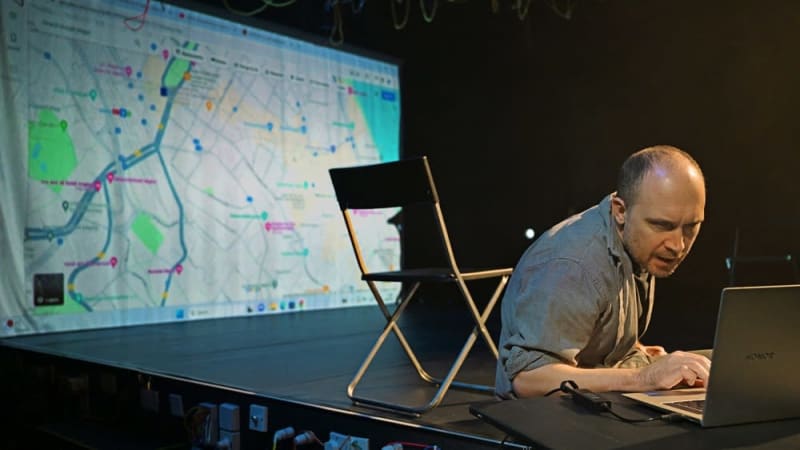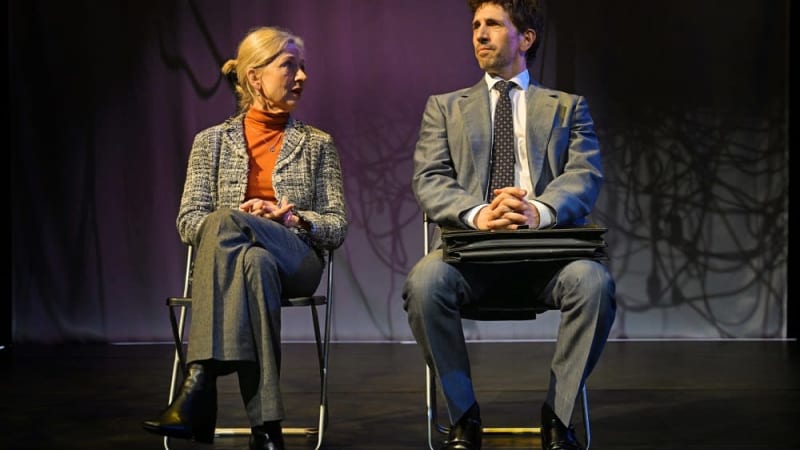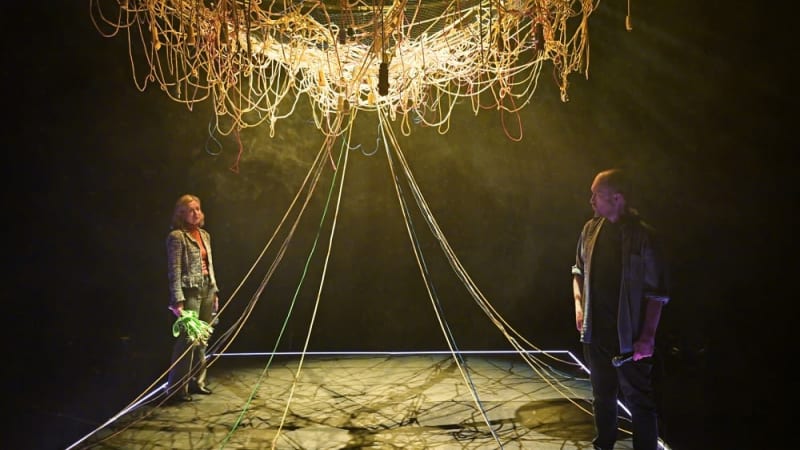Chris Thorpe’s A Family Business focusses on the human story of the struggle for nuclear disarmament. This is nothing if not topical as, depressingly, recent events prove points made in the play. Russia's nuclear rhetoric and posturing have made the risk of nuclear weapons use the highest it has been for decades and revived calls for new risk reduction efforts. Meanwhile, the UK Parliament squabbles about procedure rather than principle during the debate on a ceasefire in Gaza demonstrating the difficulty of politicians reaching agreement on any topic.
Author and performer Chris Thorpe has a Damascene moment in a posh hotel bar when he becomes aware of the Treaty on the Prohibition of Nuclear Weapons (TPNW), a United Nations attempt to compel the nine nuclear nations to disarm. A Family Business is Thorpe’s attempt to raise awareness of the TPNW which works on the principle that the existence of nuclear weapons, rather than acting as a deterrent, increases the probability of nuclear disaster, and disarmament is the only safe option.
Director Claire O’Reilly brings some theatrical flourishes to the play. A tangled mass of electrical cables and plugs hangs over the stage as if to represent the complexity of trying to secure agreement among so many nations. Thorpe’s presentation of facts and figures and interaction with the audience alternates with staged performances from a trio of actors.
Veronique (Andrea Quirbach) is a dedicated UN official seeking to secure the ratification of the Treaty by a minimum of 50 nations, James (Greg Barnett) represents the nuclear nations which favour the status quo, while Layla (Efé Agwele) is from the global south—the nations of the world which are regarded as having a relatively low level of economic and industrial development.
However, the emphasis throughout is on providing information and opinions rather than establishing credible characters, so the actors become little more than articulations of particular viewpoints. Some of the information is fascinating—one country ratified the Treaty on paper stolen from an estate agent as the office printer had run out and it was the early hours of the morning—but there is a lot of detail which eventually swamps the listener.
The dramatised aspects of the play give a hint of the realpolitik involved in the negotiation process. It is made clear to Layla the economic aid upon which her country depends could dry up if support is given to the Treaty. But the need to convey chunks of information limits the drama in the play—no effort is made, for example, to suggest a ‘David and Goliath’ situation of the smaller countries daring to challenge the more economically prosperous nuclear nations.
At heart, therefore, A Family Business is a monologue by author Chris Thorpe. He throws himself into the role of master of ceremonies with a passion, greeting patrons upon arrival and presenting his arguments in a chatty manner. While the dramatised scenes reflect the difficulty of securing an agreement between nations with their own axes to grind, Thorpe’s presentation concentrates more on the horror caused by nuclear explosions. This seems an odd approach, as it is hard to imagine anyone in the audience would be in favour of nuclear conflict and need to be exposed to a contrary viewpoint.
Thorpe involves the audience in the presentation by way of questions (indeed it feels like the post-show Q&A, apparently a standard feature of shows at HOME, has started early). But the effect is curiously passive—patrons are invited to offer opinions on favourite locations in the city which would be destroyed in a nuclear blast but never really challenged. It is established early in the show few people are aware of TPNW but, having given details, Thorpe does not try to establish whether the audience thinks it is a priority compared to day-to-day concerns such as the cost-of-living crisis or the difficulties facing the NHS.
A Family Business leaves the audience better informed about the Treaty on the Prohibition of Nuclear Weapons, but does not succeed in being a call to arms to push for the treaty to be ratified.



